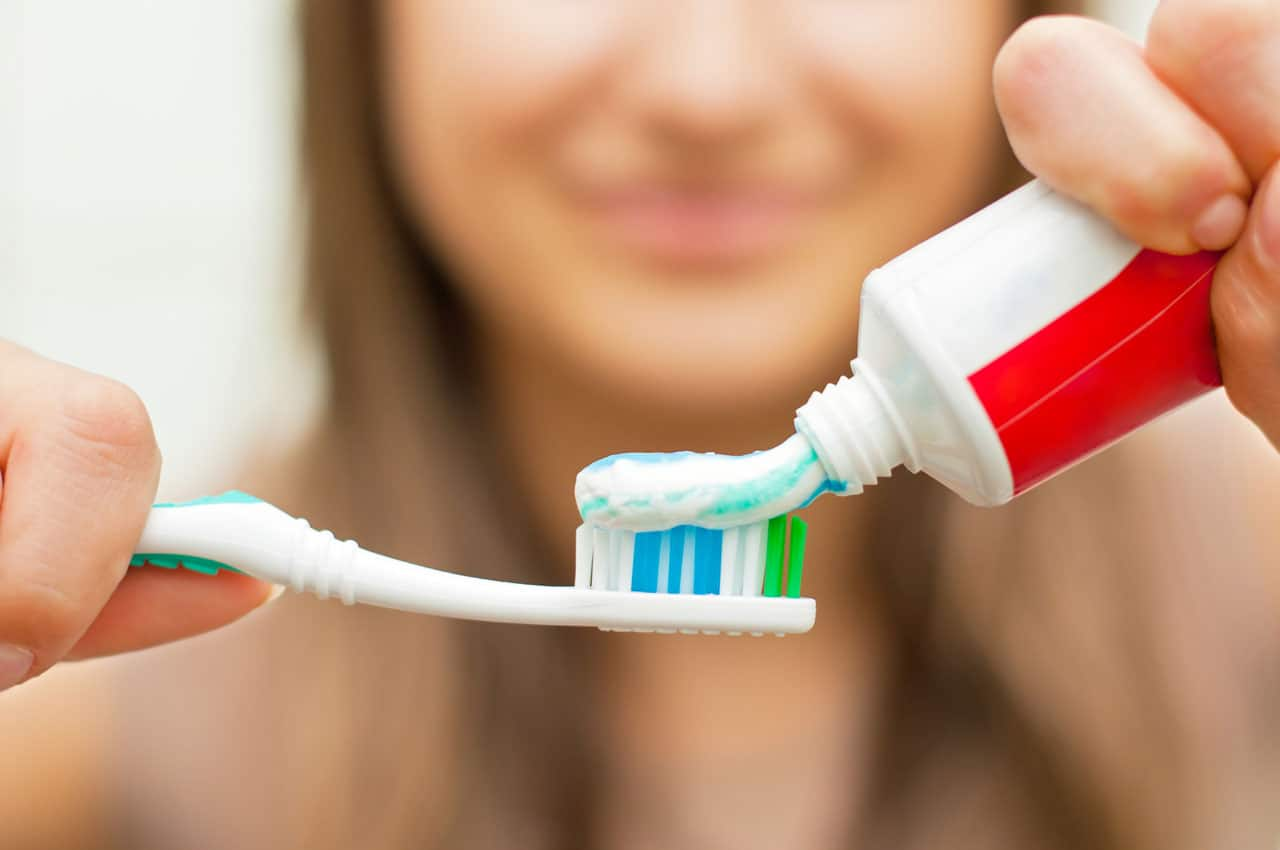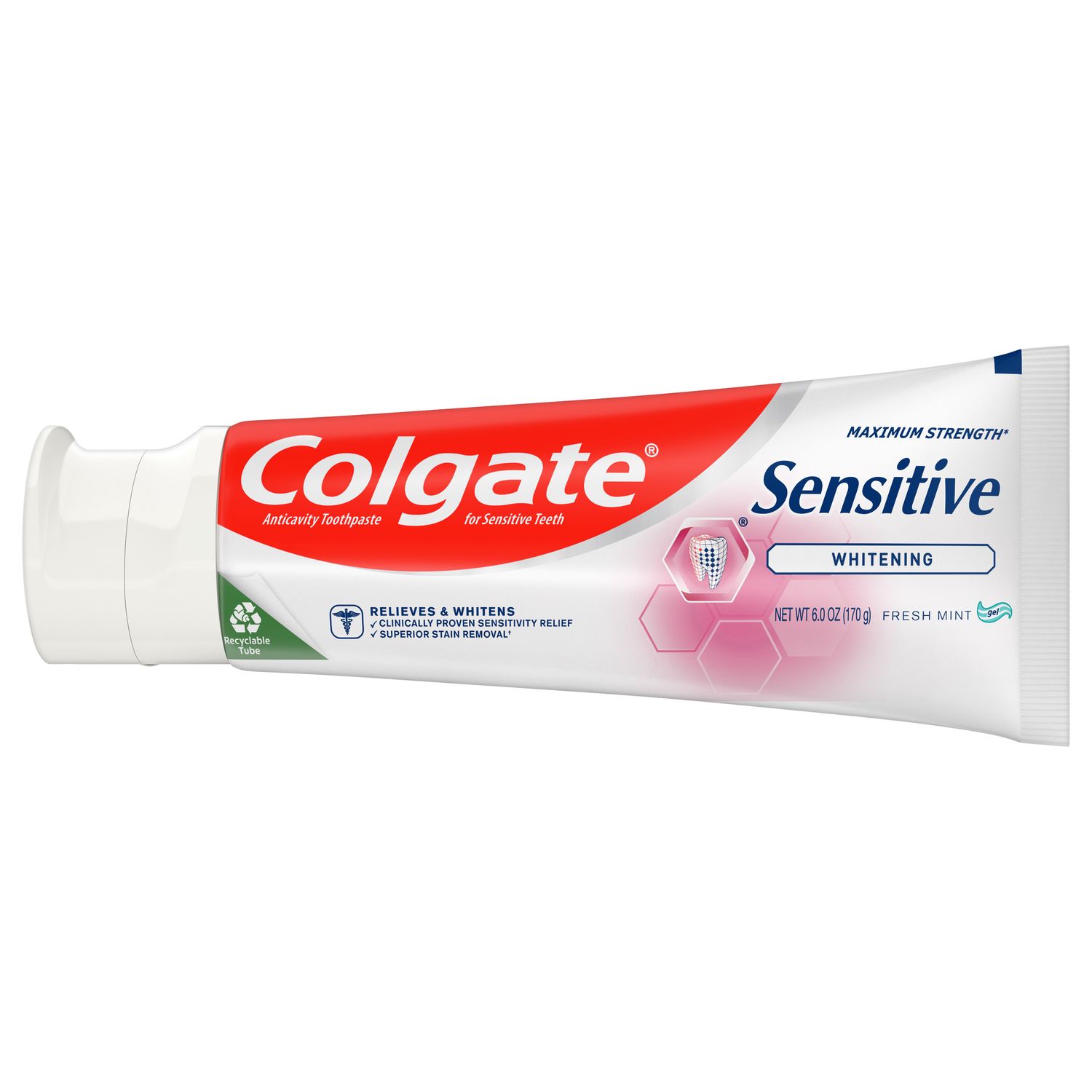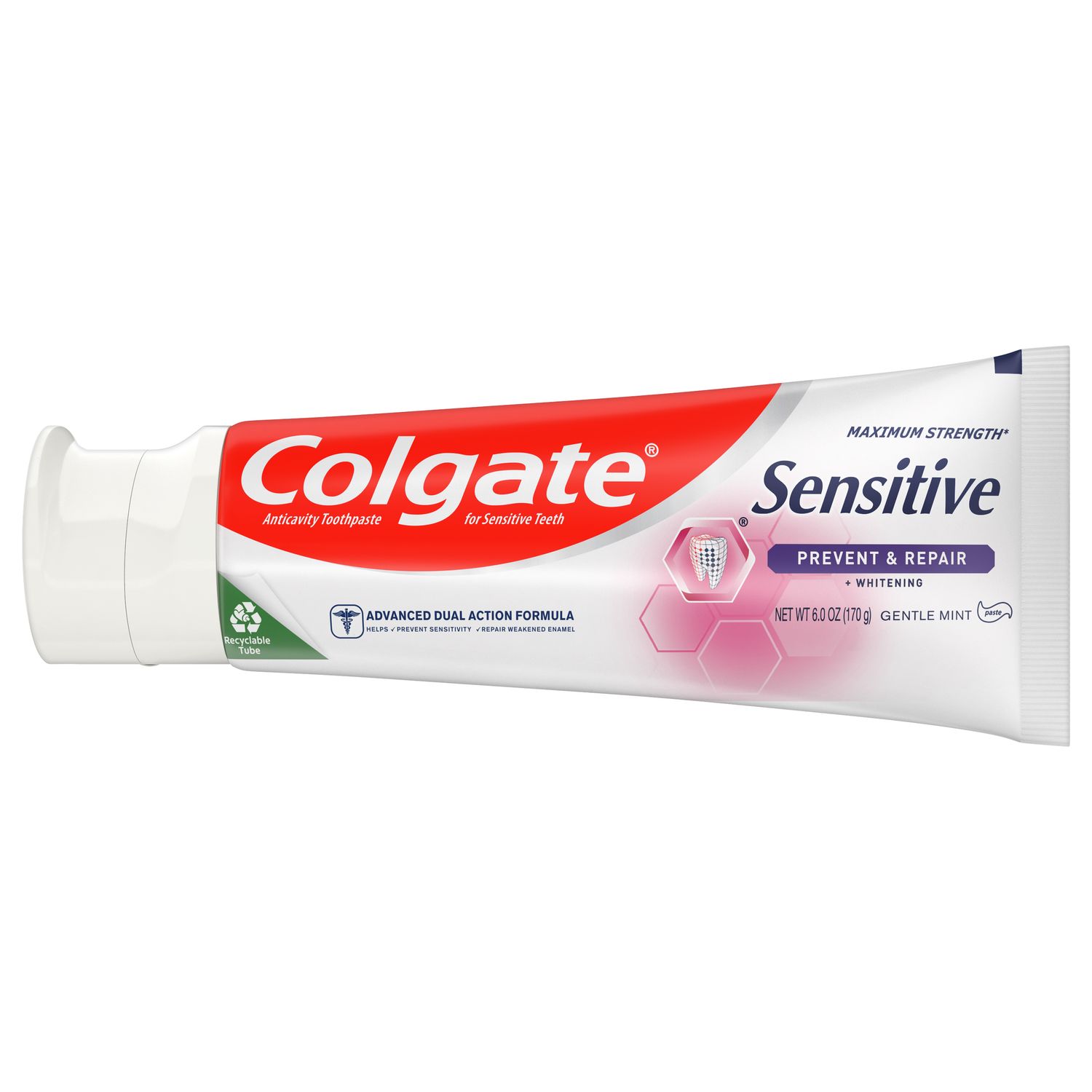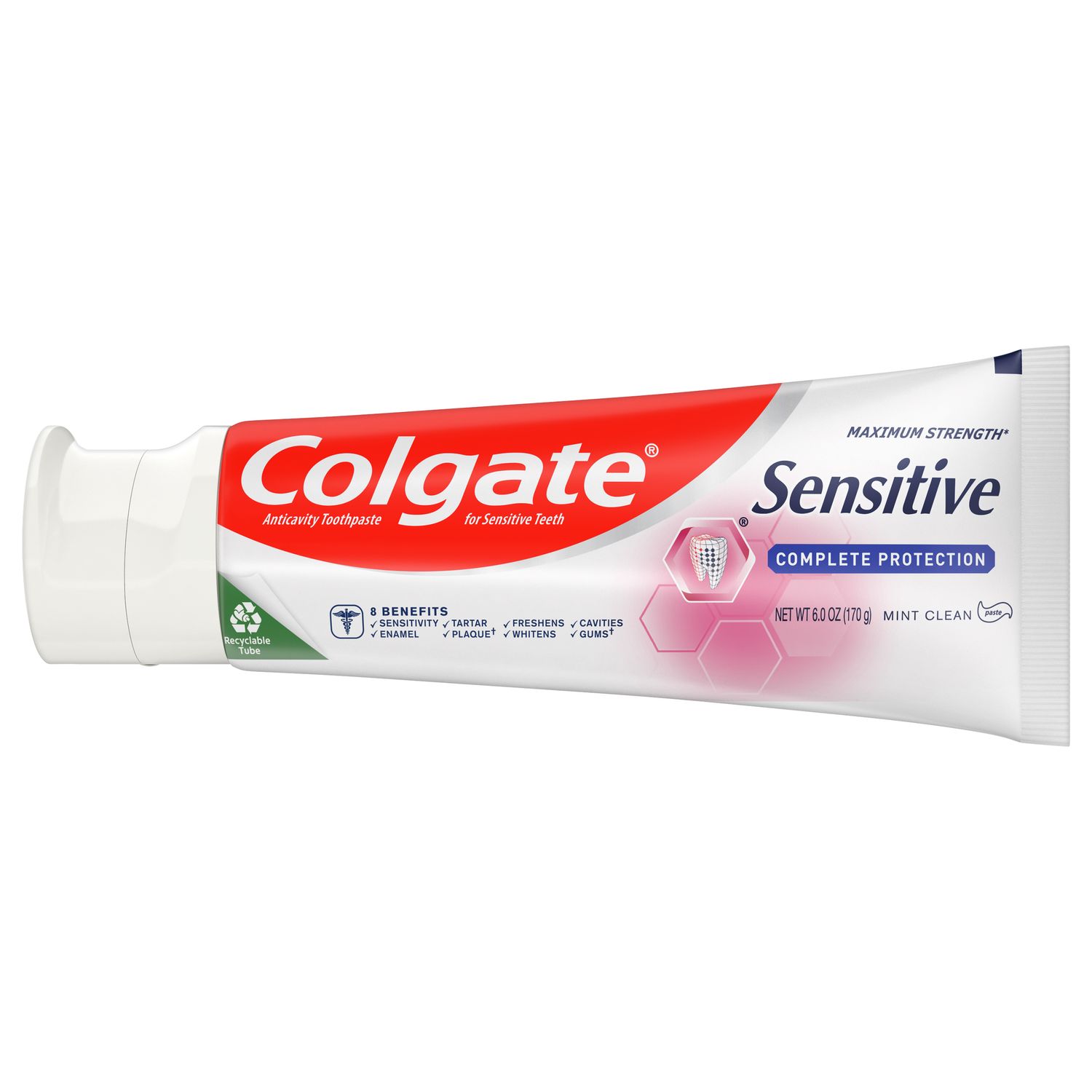What Causes a Toothache?
There are many different causes for toothaches from minor gum irritation from brushing too hard to injury and decay. Toothache is caused when the dentin tubules which are connected to the nerves of your tooth are irritated or exposed. Possible causes for toothache include:
- Cavities
- Abscessed tooth
- A chipped or cracked tooth
- A damaged dental restoration (like a filling or crown)
- Teeth grinding or clenching (bruxism)
- Gum disease or gum recession
- Teeth whitening
Tooth Sensitivity
If you experience sharp pains when eating or drinking foods and liquids with extreme temperatures, for example, it could mean you have a cavity. But it may also be a sign that you have sensitive teeth. Tooth sensitivity occurs when the inner layer of your tooth, known as dentin, becomes exposed. This type of toothache occurs even when there's no cavity to find. Dentin usually becomes exposed when there's a wearing away of enamel or gum recession. These things can occur because of overbrushing, trauma, or another reason.
Some Toothaches Are More Severe
If you have sharp tooth pain when you bite down on food, the cause could be a cracked tooth. If you have throbbing, constant pain, you may have an abscessed tooth or an infection. You should see your dental professional about this issue as soon as possible. This is because if your tooth has an abscess, its infection has the potential to spread to your mouth or neck.
It Might Not Even Be Your Teeth
If there's no sign of a cavity, but tooth pain persists, there are other possible reasons that should be explored. A sinus infection, for example, is a less common but significant cause of tooth pain. If only your upper teeth on both sides of your face are in pain, sinusitis could be the culprit. Since the top teeth are right below the sinuses, pressure from an infection or inflammation in these areas can radiate pain in the mouth, causing a toothache. This sort of toothache is usually accompanied or preceded by nasal congestion and tenderness around your sinuses. If you suspect this is the cause of your tooth pain, you may wish to see your medical professional for discussing prevention and treatment.
Suppose you feel pain more in your jaw rather than just in a specific tooth. In that case, temporomandibular disorders could be the cause. You could have this disorder because of direct injury or trauma to your jaw, tooth grinding (bruxism), or arthritis
If you still have your wisdom teeth, impacted molars could also be causing you jaw pain. Your molars become impacted when there's no room in the back of your mouth for them to emerge out of your gums properly.
Can a Toothache Cause Ear Pain?
It might. Your jaw, teeth, and ear are part of the trigeminal system – a three-pronged sensory nerve system. The system is responsible for sensations in the eyes, nose, ears, meninges, and mouth. If the trigeminal nerve is compressed it can lead to trigeminal neuralgia resulting in ear pain from your toothache. A toothache may also be caused by an ear infection or sinus infection.
How Long Does a Toothache Last?
It depends on the underlying cause. If it’s caused by temporary gum irritation from brushing too hard or a misplaced popcorn kernel, it should go away in a day or two. Teeth whitening treatments can cause temporary toothache by demineralizing the dentin. This should resolve once the minerals are restored. If injury to your tooth, a cavity, damaged filling or abscess are responsible for your toothache, the pain will probably continue until you get treatment. Treatments include a dental filling, crown, inlay or onlay and root canal therapy for deeper cavities and decay. If you have an abscess, you will likely experience more severe pain. See your dentist for any toothache or sensitivity that lasts longer than a couple of days, especially if you have a fever or swollen jaw which may mean your infection is spreading.
How to Get Rid of Your Toothache
Over-the-counter pain relievers can help relieve your toothache while you wait for treatment. If your toothache is caused by a severe abscess, antibiotics may be needed to clear up the infection causing your pain. There are also some natural remedies for toothache you can try. These include:
Salt water rinses - Salt water is a natural disinfectant, and rinsing can loosen debris stuck in between teeth that can cause tooth pain. Mix 1/2 teaspoon of salt into a glass of warm water and use it as a mouthwash.
Hydrogen peroxide rinses - Antibacterial hydrogen peroxide reduces plaque, heals bleeding gums and helps ease tooth pain. Mix 3% hydrogen peroxide with equal parts water. Swish in your mouth and spit out.
Tea bag compresses - Peppermint tea bags can numb pain and soothe sensitive gums. Steep for 1-2 minutes and cool in the freezer before applying it to the affected area. You can also apply a cold compress to your jaw to reduce swelling.
Clove oil - Clove contains eugenol, a natural antiseptic that numbs tooth pain and reduces inflammation. Dab a small amount of diluted clove oil (with a carrier oil or water 15 drops of clove to 1 part carrier oil) onto a cotton ball and apply it to the affected area a few times per day.
See Your Dental Professional to Be Sure
Even if your toothache is more a dull sensation rather than a sharp pain, it doesn't mean your discomfort isn't worth taking the time to figure out its cause. Intermittent pain may seem like just an inconvenience and not worth an immediate call to your dental office, but waiting until the problem becomes worse is rarely the best option. Whatever the type and severity of your tooth pain, it is best to call your dental professional and make an appointment.
As noted by Mayo Clinic, there's another reason it's essential to see your dental professional for a toothache. New research indicates cause for concern for some over-the-counter drugs for toothache relief. Benzocaine, an ingredient found in many gels for tooth pain, has been linked to a rare but sometimes deadly disease called methemoglobinemia. Your dental professional can help you determine if a drug containing benzocaine is right for your situation and how much of it is safe for you to use.
The causes of toothaches are not always clear. But a conclusive diagnosis about the source of your pain from a dental professional can set you on track for minimizing and treating it. While tooth pain without a cavity probably isn't the investigative work you were hoping to do, for the sake of your oral health, it's smart to take it seriously. While you wait to see your dental professional, you can explore at-home tips for dealing with toothaches and continue with your excellent oral care routine!
This article is intended to promote understanding of and knowledge about general oral health topics. It is not intended to be a substitute for professional advice, diagnosis or treatment. Always seek the advice of your dentist or other qualified healthcare provider with any questions you may have regarding a medical condition or treatment.
ORAL HEALTH QUIZ
What's behind your smile?
Take our Oral Health assessment to get the most from your oral care routine
ORAL HEALTH QUIZ
What's behind your smile?
Take our Oral Health assessment to get the most from your oral care routine














